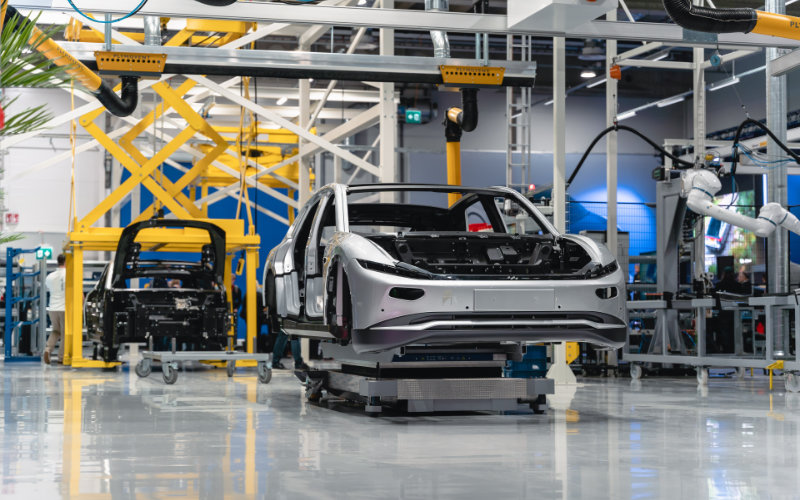Morocco’s Electric Vehicle Challenge: Can Africa’s Top Automaker Compete Globally?

Morocco continues to consolidate its position as the largest automotive production center in Africa. But will it be able to take up the challenge of competitive electric vehicles against the United States, China and France, which are ahead on this project?
In the space of two decades, commercial incentives and investments in infrastructure such as the freight rail line have allowed Morocco to grow its once almost non-existent automotive industry into the largest in Africa. The kingdom now has more than 250 automotive suppliers, many of them subsidiaries of foreign companies, employing some 220,000 people. It supplies more cars to Europe than China, India or Japan, and has the capacity to produce 700,000 vehicles per year. "15 years ago, we didn’t export a single car. Today, it’s the country’s top export sector," said Ryad Mezzour, Minister of Industry and Trade, in an interview with Associated Press. According to his explanations, Morocco has distinguished itself from other outsourcing destinations by developing its ports, free trade zones and highways. In addition, the government has offered subsidies of up to 35% to manufacturers to set up factories in the rural hinterland outside Tangier, where Renault now produces Clio as well as the Dacia Sandero, Europe’s most popular passenger car, and plans to soon start manufacturing the Dacia Jogger hybrid.
To read:
Today, Morocco is preparing for the era of electric vehicles, thus following the same dynamic as Europe, which is striving to gradually eliminate internal combustion engines over the next decade. But will it be able to meet the challenge of competitive electric vehicles? The successes achieved by Renault in Morocco make it an attractive destination for other investors, particularly in electric vehicles, said Mohamed Bachiri, Renault’s Director of Operations. According to him, the Moroccan industry will probably continue to grow, as Morocco’s "integration rate" - the percentage of parts that automakers can source nationally - has steadily increased to over 65%. The country also has a competitive advantage in having experienced and skilled automotive employees that are lacking in other outsourcing destinations, Bachiri added. And he continued: "We are predisposed to manufacture cars for our sector’s customers. And the day they decide they need electric vehicles, we will do it".
While "the United States and European countries are encouraging their automakers to ’localize’ the production of electric vehicles, Morocco has long prided itself on being a free market that avoids tariffs and trade barriers," the article notes. As a result, the kingdom finds itself caught as countries vying for the benefits of electric vehicle production adopt policies to protect their domestic automotive industries. The Western governments that have long pushed developing countries to adopt free trade are now adopting policies aimed at boosting their own electric vehicle production, the author of the article points out. In 2023, both France and the United States have adopted tax credits and incentives for consumers who buy electric vehicles made respectively in Europe or North America. The American incentives could extend to Morocco, the two countries sharing a free trade agreement. Not enough to reassure Ryad Mezzour. According to him, these incentives complicate the global supply chain and sometimes make his job more difficult. "We are living in a kind of new era of protectionism," he stressed. And he added: "We are living in an instability in terms of trade rules, which makes the task more difficult for countries like Morocco that have massively invested in open, free and fair trade."
Related Articles
-

Oualidia: Morocco’s Hidden Coastal Gem Rivals Marrakech for Luxury and Tranquility
5 September 2025
-

Morocco’s Real Estate Slump: Transactions Plummet 21% as Major Cities Face Diverging Fortunes
5 September 2025
-

Moroccan Dirham Slips as Foreign Reserves Surge: Economic Shifts Shake Markets
5 September 2025
-

Moroccan Authorities Probe Suspicious Financial Transfers to African Countries
5 September 2025
-

Ryanair Expands Cabin Baggage Allowance: 33% More Space for Passengers, Including Morocco Flights
5 September 2025